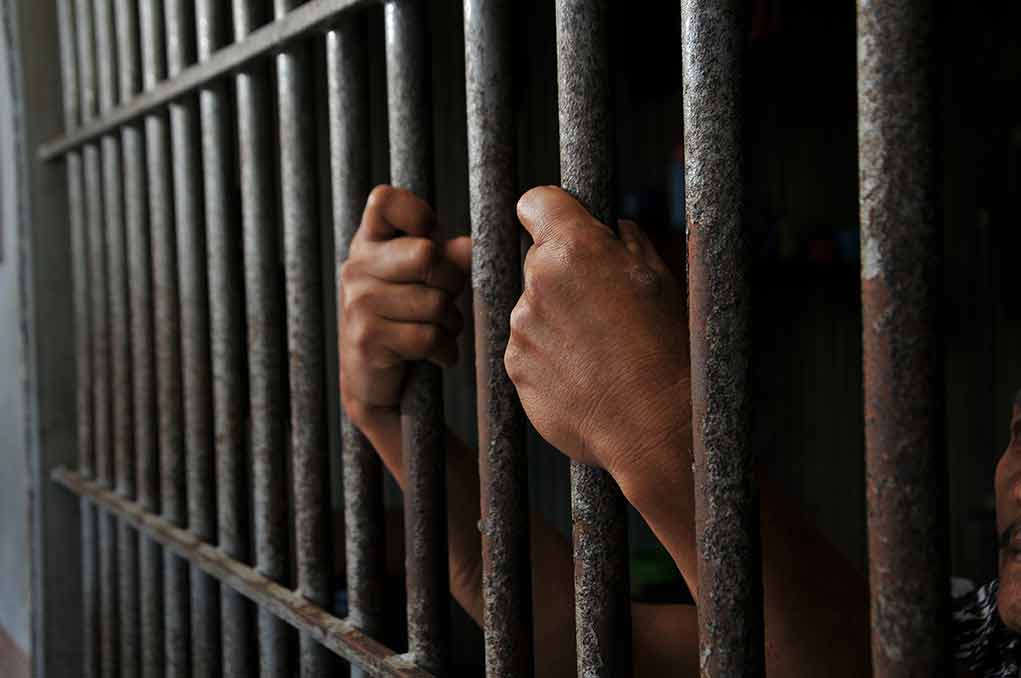
Viral sensation Silentó, whose “Watch Me (Whip/Nae Nae)” dance craze once dominated social media, now faces 30 years behind bars after confessing to killing his own cousin in a shocking case that reveals the dark reality behind his public persona.
Key Takeaways
- Rapper Silentó (Ricky Lamar Hawk) has been sentenced to 30 years in prison after pleading guilty but mentally ill to voluntary manslaughter in the 2021 shooting death of his cousin, Frederick Rooks.
- Despite reaching No. 3 on the Billboard Hot 100 with his viral hit “Watch Me (Whip/Nae Nae),” Silentó’s career was overshadowed by escalating legal troubles and documented mental health struggles.
- Security footage and GPS data linked Silentó’s BMW to the crime scene, with the rapper confessing to the murder 10 days after the incident.
- Prior to the killing, Silentó had multiple arrests for domestic violence and dangerous behavior, including an incident where he was caught speeding at 143 mph.
- His publicist had previously revealed his ongoing battle with mental illness, highlighting the hidden struggles behind his public image.
From Viral Fame to Tragic Downfall
The entertainment world was stunned when news broke of Silentó’s sentencing to 30 years in prison for the murder of his cousin. The rapper, whose legal name is Ricky Lamar Hawk, rose to fame in 2015 with his chart-topping single “Watch Me (Whip/Nae Nae),” which became a cultural phenomenon and reached No. 3 on the Billboard Hot 100. The dance-instructional track went viral particularly on the app Vine, turning the then-teenager into an overnight sensation and inspiring countless dance videos across social media platforms. His rapid ascent to fame, however, would be followed by an equally dramatic fall.
Despite his early success, Silentó failed to produce another hit of similar magnitude, and his career trajectory took a troubling turn as reports of erratic behavior began to surface. In 2020, just months before the fatal shooting of his cousin, the rapper faced multiple legal issues including arrests for domestic violence and assault with a deadly weapon. In another alarming incident, he was stopped by police for driving at 143 mph on an Atlanta highway. These incidents served as warning signs of deeper issues that would ultimately culminate in tragedy.
The Crime and Confession
In January 2021, DeKalb County Police discovered Frederick Rooks with multiple gunshot wounds. The investigation quickly linked Silentó to the crime through security footage and GPS data that placed his BMW at the scene. The rapper initially denied involvement but confessed to the killing just 10 days later. Court documents revealed that Silentó accepted a plea deal reducing his charge from malice murder to voluntary manslaughter, while also pleading guilty to aggravated assault, possession of a firearm during a felony, and concealing the death of another. A separate felony murder charge was dropped as part of the agreement.
“I’m sorry for both sides,” stated Rooks’ sibling following the sentencing, revealing the complex emotions felt by family members caught between grief and recognition of Silentó’s mental health struggles.
The plea of “guilty but mentally ill” highlights a critical aspect of this case that has drawn attention to mental health issues within the entertainment industry. Silentó will serve his 30-year sentence with credit for time already served since February 2021, when he was first taken into custody. The sentence represents a tragic end to what began as a promising career for the young performer who was only 17 when he achieved global fame.
The Mental Health Crisis Behind the Headlines
Long before the fatal shooting, those close to Silentó had been raising alarms about his mental state. His publicist, Chanel Hudson, made a public statement following his arrest that revealed the extent of his struggles. “Over the past several years, Ricky has been suffering immensely from a series of mental illnesses,” she wrote. “We will continue in his efforts of treatment, but we ask in the meantime the public uplift him and his family in immediate prayer & positive energy!!”
In his own words, Silentó had previously acknowledged the toll that fame had taken on his mental health. “Depression doesn’t leave you when you become famous, it just adds more pressure,” Silentó once stated, offering a glimpse into the private struggles that contrasted sharply with his energetic public persona. Reports indicate that in 2020, Silentó attempted suicide, further underscoring the severity of his mental health crisis. The case raises important questions about how the entertainment industry addresses mental health concerns among young performers thrust suddenly into the spotlight.
The tragedy of Silentó’s case serves as a stark reminder of the potential consequences when mental illness goes untreated or inadequately addressed. While his sentence provides legal closure, it also highlights the critical need for better mental health awareness and intervention, particularly for young celebrities navigating the pressures of sudden fame and the inevitable challenges that follow when that spotlight begins to fade.




